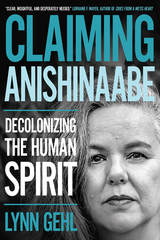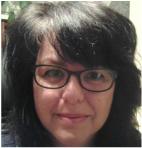 University of Regina Press University of Regina Press People are pondering and asking questions such as why it is that after 25 years not much has changed since the massacre of 14 engineering women in Montreal on December 6th, 1989. People, all people, need to return to our ancient Indigenous knowledge systems. We all have ancient knowledge systems that served to protect women and children, men, and the earth and all the gifts she provides. When I read Judy Rebick’s recent blog post where she reflects on the continuation of sexual violence, and her coming to the conclusion that the problem is deeply rooted in our culture where as such we have to go beyond changing the laws and our legal system and develop processes at the community level, I felt hopeful. Judy suggests we need to change our culture at the community level where institutional power is not found. This raises the question where is culture? We Need to Remember Our Culture If we want to eliminate oppressive patriarchy, misogyny, and its effects from our communities we need to return to the ancient practices that all (Red, Black, Yellow, and White) our ancestors relied on: The Indigenous knowledge systems that predated nation states such as Canada. Returning to Indigenous knowledge is the only way we will remove the violence done to women, children, and Mother Earth. Broadly speaking Indigenous knowledge is the knowledge that predates heteropatriarchy, sexism, racism, ableism, industrialization, corporate power, and materialism. Our Bodies Are Intelligent, Our Bodies Remember Knowledge comes to us through the practices our bodies do, and exits our bodies that way too. It is as simple as it is sophisticated: Indigenous social and moral codes operate through the embodiment of an internal locus of control. What I mean by this is that children and individuals are socialized in a way where we learn to govern our bodies and behaviour from the inside, rather than through the imposition of external apparatus such as police, fines, written laws, courtroom proceedings, judges, and prisons. It is as simple as it is sophisticated: Our voices, our bodies, our feet, our hands, our hearts, and the practices we do with them are both entrance portals as well as exit portals of knowledge, morals, and emotions such as anxiety, frustration, and anger. While most people are unable to value this truth, the very practices we are taught and socialized through, and with, are governance medicines. Indigenous knowledge systems consist of ancient stocks of knowledge and grounding practices such as chanting, songs, drumming, as well as ceremonies and rituals such as prayer, feasting, and dancing. Indigenous knowledge systems also consist of our daily household and community responsibilities such as sewing, knitting, beading, cooking, hunting, harvesting, carving, and wood chopping. Most people no longer value that these practices are medicines of protection and they ignore them. Regardless, they are just that. They are protection medicines in that they serve to shape and inform who we are, how we behave toward one another, how we move emotions outside our bodies and, for that matter, how we interact with and care for the natural world. Corporeal Knowledge is the Jurisdiction of Families and Communities, Not the Nation State In the Anishinaabeg Indigenous knowledge tradition mothers, fathers, extended family members, and community members − rather than schools and other such institutions of nation states − work hard to ensure that children are taught and socialized through the practices of song, ceremony, and ritual so that the knowledge becomes embodied within them in a deep and subconscious way while they are still young. While this knowledge is subconsciously landscaped and located within the soil of the child, it is not until they age and grow up when they move into a more conscious understanding of the knowledge of who they are as a self in relation to all else. It can be said it is not until they age when the knowledge germinates in a conscious sense of what knowledge is. When Our Minds Fail Us, Our Bodies Remember Through a long loving family and community socialization process this embodied knowledge of who they are as a human being; who they are within the network of community relationships; the importance of women, men, children, and elders in the community; and the importance of living in harmony and balance with people and the natural world remains there in a way so they can rely on it to guide their emotions and behaviour in times of stress, depression, anxiety, and anger. This embodied knowledge is also there guiding and comforting them as they cope with the death of family members and when they too pass into the spirit world. Through the subconscious embodiment the knowledge becomes who they are and all that they do. It becomes their default way of being that they are then able to rely on when they need it most. When their mind fails them, their bodies will remember who they are and what to do. What the Body Does, the Heart Feels, and the Minds Thinks While the western world thinks we learn through the mind, in the Indigenous world and contained within our ancient knowledge traditions and practices it is valued that what the body does, the heart feels, and the mind thinks. In this way, our body teaches and shapes our hearts and minds how to feel and think and act. The entire landscape of our bodies is where knowledge is first seeded, not our minds. These seeds are planted and germinated through cultural practices. Freud and Jung Freud offered the model of the iceberg as a way to explain the location – the tip of the iceberg – and smallness of human consciousness where the bulk of who we are as humans resides below the surface in the subconscious. Carl Jung offered the model of the cork floating in a huge sea, where the smallness of the cork represented human consciousness. I find these models useful in bringing to the minds of western peoples, or peoples who have not thought much about who we are as human beings, how little and insignificant our conscious minds really are. Our Body’s Memory, Not After-the-Fact Fixes When we learn to value how small our conscious minds are, the limitations of policies, laws, courts, and the prison system in guiding us forward as we struggle to be better people becomes more obvious. These external locus of government controls – external in that they are outside the landscapes of our bodies − are merely after-the-fact-fixes to the violence that as such do very little to curb the very thing they claim to do. This Knowledge is Protective Medicine Why is it that these after-the-fact-fixes are inadequate at helping us live as good and moral human beings? It is because they are external measures of control imposed on us after we have grown and after we already know, or more accurately don’t know, who we are as human beings. They are not embodied through loving, caring, family and community practices. Again, morals need to be subconsciously embodied in a kind, loving, non-judgemental, and fun way; subconsciously embodied in a way that they will always be with us as we age and grow; subconsciously embodied in a way that when our conscious minds fail us, or potentially misguide us, such as when we are anxious, depressed, stressed, angry, or sick and dying the knowledge will guide and protect us. This knowledge of who we are will be in our bodies. This corporeal knowledge will protect us and our communities in a way that external measures of government control cannot. In sum, the embodiment of our prayers, songs, dances, and so many other practices such as feasting, hunting, harvesting, sewing, and beading serve to guide and direct us to act as better human beings when we most need it. It is knowledge that Nation States Cannot Give and Should Never Take Away Our ancestral Indigenous knowledge systems are the cultural medicines that nation states, with their roots in patriarchy, the subjugation of women’s knowledge, misogyny, and the economic exploitation of the Earth, have worked hard to make many of us forget who we are as human beings. Today these same nation states are floundering at how to address the misogyny that is killing so many of our family and community girls and women, Indigenous women more so. It is as simple as it is sophisticated. All people need to remember their Indigenous knowledge systems. Our communities, women, children, and men deserve better than the misogyny that the state has imposed on our bodies and in our communities. Related Black Face Blog on Indigenous Knowledge: http://www.lynngehl.com/black-face-blogging/on-indigenous-knowledge http://www.lynngehl.com/my-indigenous-knowledge-protection-act.html http://rabble.ca/news/2013/06/genocide-racism-and-canada-day-algonquin-anishinaabekwe-love-letter http://www.lynngehl.com/black-face-blogging/caw-caw-caw-what-is-your-indigenous-knowledge  Lynn Gehl, Ph.D. is an Algonquin Anishinaabe-kwe from the Ottawa River Valley. She has a section 15 Charter challenge regarding the continued sex discrimination in The Indian Act, and is an outspoken critic of the Ontario Algonquin land claims and self-government process. She has three books: Anishinaabeg Stories: Featuring Petroglyphs, Petrographs, and Wampum Belts, The Truth that Wampum Tells: My Debwewin of the Algonquin Land Claims Process, and Mkadengwe: Sharing Canada's Colonial Process through Black Face Methodology. You can reach her at [email protected] and see more of her work at www.lynngehl.com.
8 Comments
lorie laforme
12/14/2014 11:16:53 pm
this puts into words the things i know already deep inside ..explains the your knower knows i call it....excellent ..something i will reread till it sticks...js
Reply
lorie
12/14/2014 11:28:52 pm
have you ever read the wisdom of menopause..
Reply
Lynn Gehl
11/25/2015 03:12:37 pm
No I have not. Is it good?
Reply
12/15/2014 02:11:21 am
Wonderful as always!
Reply
12/21/2014 01:00:49 am
Great article. It's one to return to several times.
Reply
Ashish
2/23/2015 11:06:03 pm
Such a true message, those communities that are holding onto their indigenous knowledge systems and at the same time actively engaged in the world today are finding greater: prosperity, victory, progress, justice! restore the first ways!
Reply
Pamela Schreiner
1/31/2017 06:50:26 pm
Beautiful! Thanks......... our attempts at externally controlling that which we missed as children must, by its very nature, be feeble.........
Reply
Your comment will be posted after it is approved.
Leave a Reply. |
|
To subscribe to Lynn's Blog: click here
To subscribe to Lynn's Newsletter: click here To follow Lynn on her Public Facebook Page: click here To subscribe to Lynn's YouTube channel: click here To book Lynn as a speaker: click here To contact Lynn/License her work: click here Copyright Dr. Lynn Gehl, 2024 All Rights Reserved
|
 RSS Feed
RSS Feed
